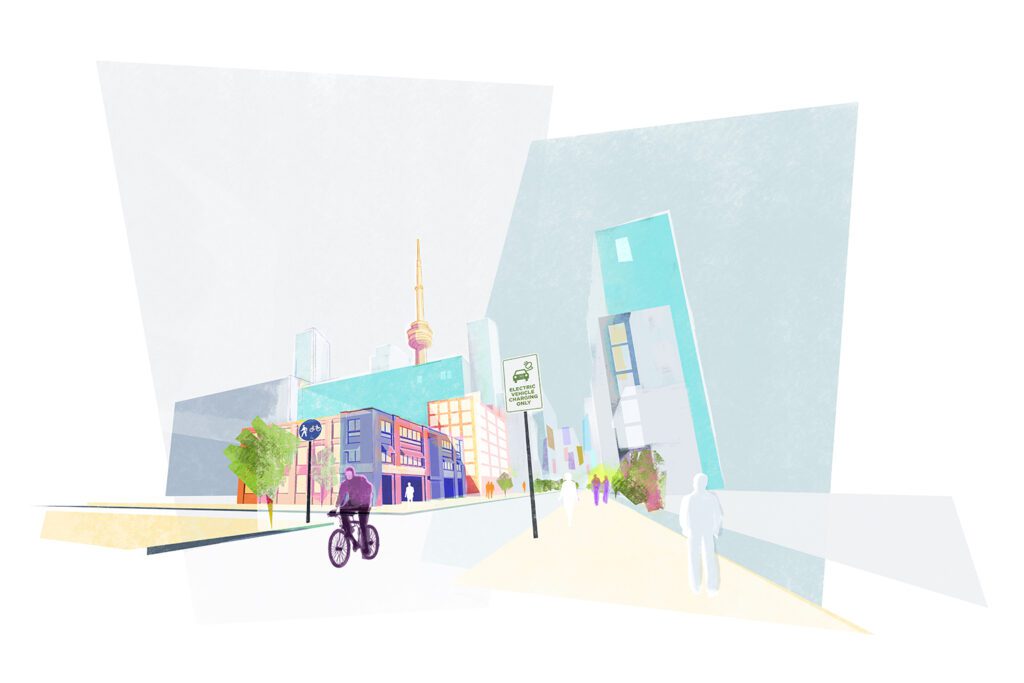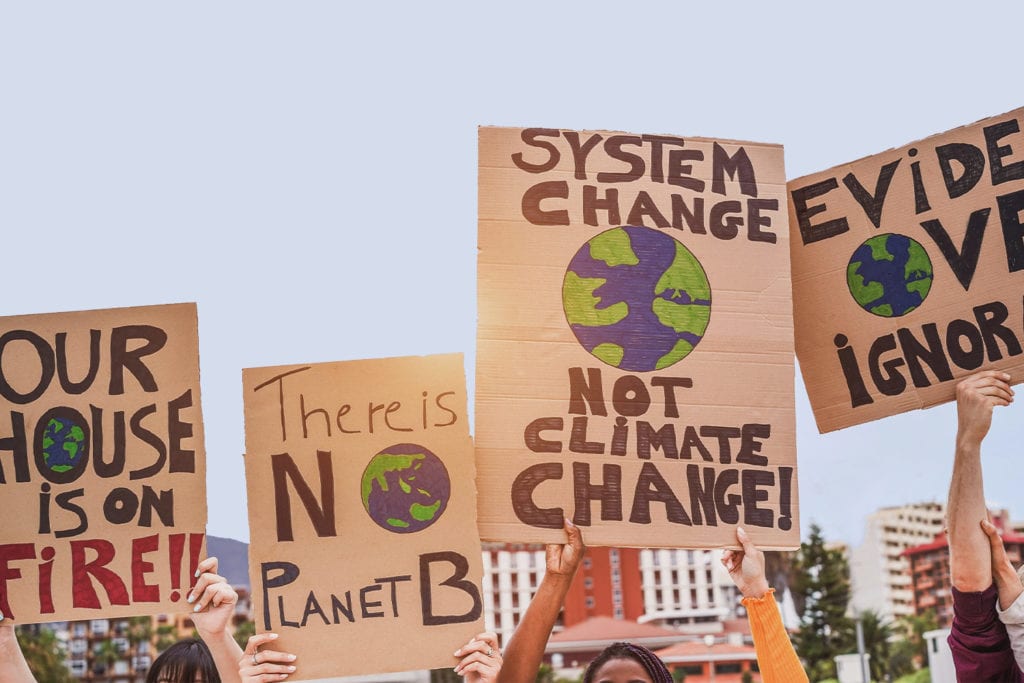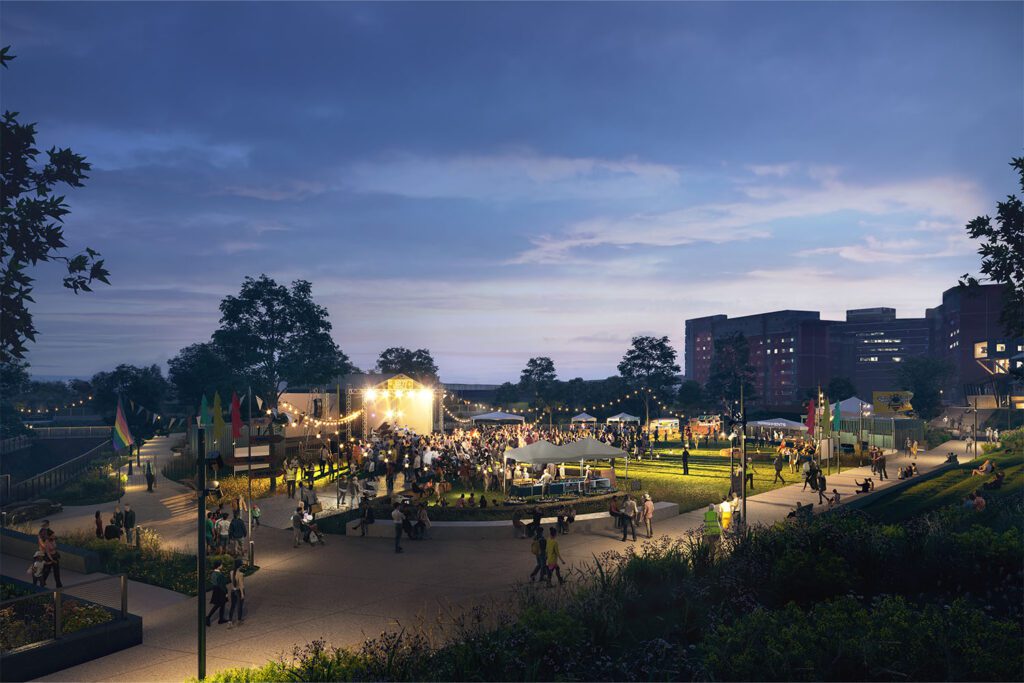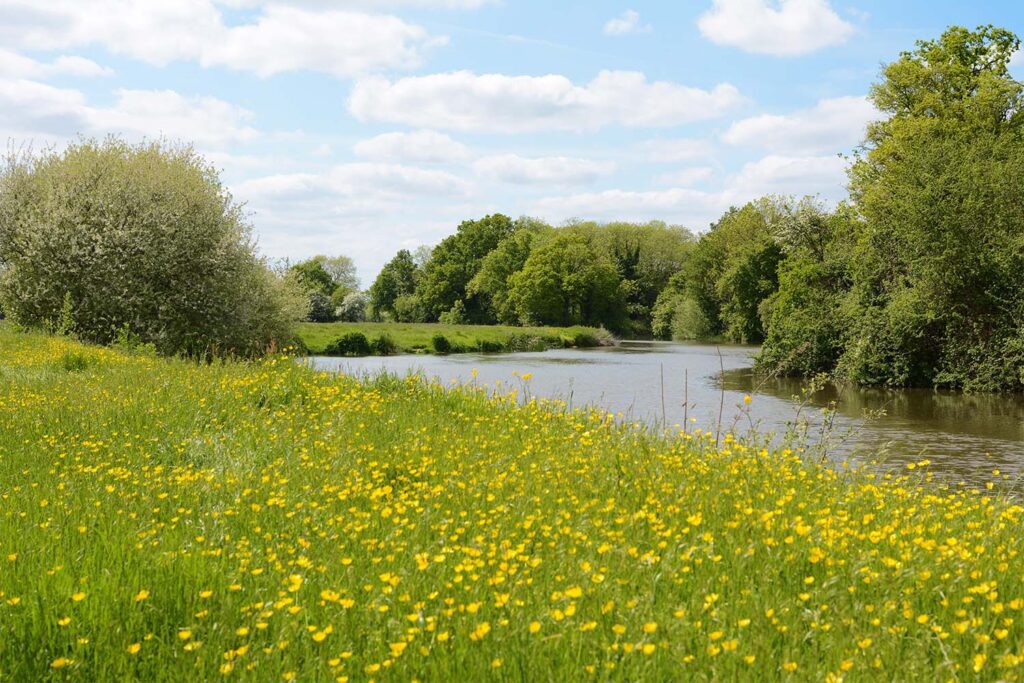RIBA and Architects Declare publish Built for the Environment report 2021
The Built for the Environment report is a call to action from the international built environment sector to governments. It calls for global leaders to meet the challenges of the climate and biodiversity emergency with a fair and sustainable built environment.
The report has been written on behalf of the Royal Institute of British Architects (RIBA) and Architects Declare, with an international panel of industry experts. It has been endorsed by organisations including C40 Cities, UN Environment Programme & Global Alliance of Buildings and Construction and Construction Industry Council.
It demonstrates the critical role the built environment sector must play to reduce greenhouse gas emissions. The report brings together research and evidence to prompt the built environment sector to scale-up its capabilities. It also sets out bold recommendations to governments ahead of COP26.

The report recommendations range from reporting emissions on consumption to adapting building codes to support the decarbonisation of buildings.
- Governments to ensure environmental targets are science-based and fair
- Governments to shift focus onto reducing absolute emissions, as opposed to reductions per square meter of building area, or per person. Greenwashing or reliance on large offsets will not help us meet our collective goals
- Governments mitigate and adapt to the climate and biodiversity emergencies via nature-based solutions
- Those operating within the built environment to actively adapt practice
- Information to be openly and widely shared to enable collaboration and transparent decision-making
- Social justice to remain at the heart of all action.
The climate and biodiversity emergency
Almost 40% of global energy-related greenhouse gas emissions are attributable to buildings and construction. The built environment is therefore critical to addressing the climate and biodiversity emergency.
The current policy landscape is falling short. More than two thirds of the new buildings that will be constructed between now and 2050 are expected to be built in countries currently without building energy codes.
Where codes are in place, they focus almost exclusively on the energy use of new buildings. This leaves huge gaps around the energy use of existing buildings and the emissions associated with constructing new buildings. Only 20% of countries include building energy codes in their National Determined Contributions (NDC)s.
The sector is a complex system with a fragmented value chain that spans many industries, government departments, regulations and areas of concern and influence. This frustrates progress and the sector’s potential to bring about much-needed change is underestimated.
We must deliver a fair and sustainable built environment
However, we have the technology and know-how to deliver a fair and sustainable built environment. We are committed to scaling up and adopting best practice. We can achieve not only environmental but also enormous social, economic, health and wellbeing benefits.
This report proposes that by looking at the built environment as a system, and by leveraging the ability of governments to provide not only regulation but infrastructure and support, we can unlock the sector’s complex and interdependent systems, and facilitate the change required to meet our collective 1.5°C target.
The report includes 10 principles for a transition to a fair and sustainable built environment, over 70 policy recommendations, and an evidence base of almost 300 projects, case studies, and reports that have been gathered via an open call and recommendations.













